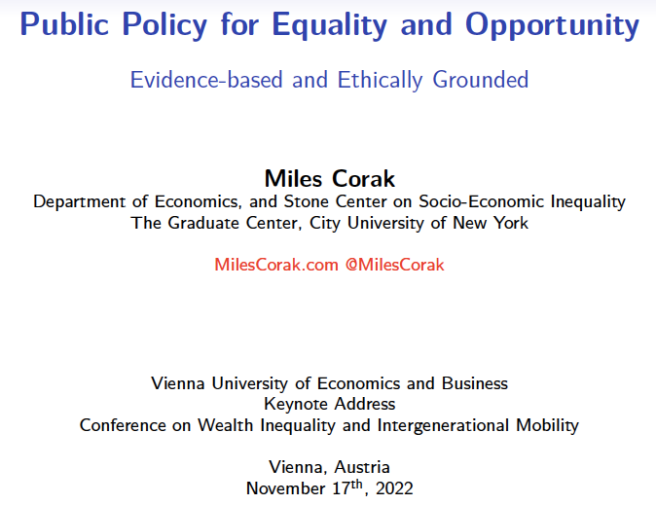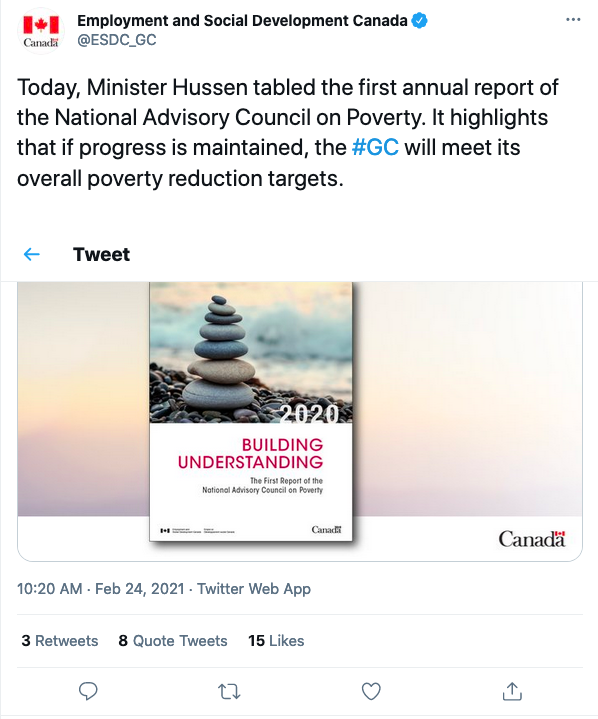Inequality erodes opportunity, and limited opportunity exacerbates inequality. This vicious intergenerational cycle has brought inclusive growth into question, contributed to the rise of populist sentiment, and strained the social contract in many rich countries. The way forward for researchers and policy makers requires not only a clear understanding of the facts about what kind of inequality matters and how it matters, but also an ethical grounding that speaks to the outcomes and opportunities that are important to citizens not only in the here and now, but also in the next generation.
This is the argument I make in a keynote lecture that I have had the privilege to give, first on October 20th 2022 to the 8th Annual Congress de Economía y de Políticas Públicas, SobreMéxico in Mexico City, and second on November 17th 2022 to the Conference on Wealth Inequality and Intergenerational Mobility at the Vienna University of Economics and Business in Vienna.





